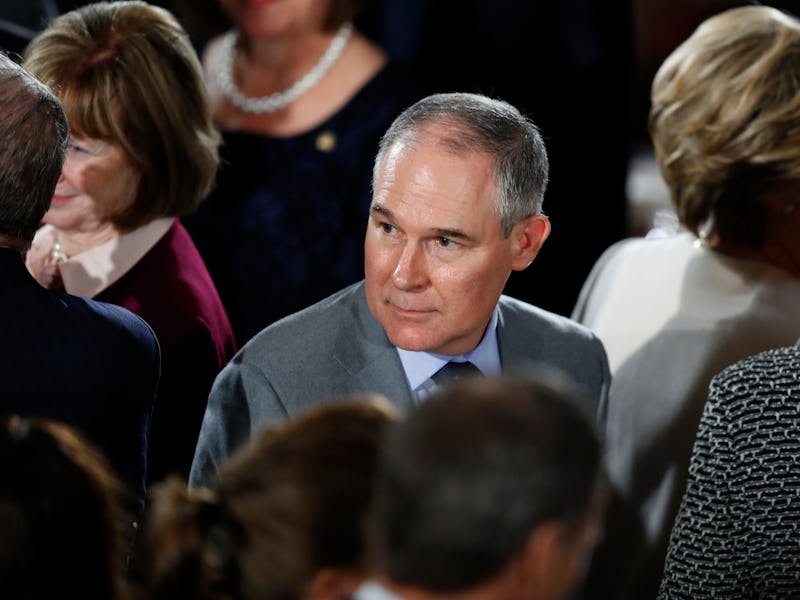Citizen Lawsuits Will Hinder Any Slash and Burn of the EPA
The power is yours.

If President Donald Trump’s administration dismantles the Environmental Protection Agency to the point where it can no longer effectively police polluters, there’s still hope: you.
Most environmental regulations have provisions that let everyday citizens file lawsuits — Any person harmed by illegal inaction of the EPA, or action of industry, may launch a lawsuit to right the situation.
Those suits could present a significant obstacle to Scott Pruitt, who is expected to be confirmed as EPA administrator Friday, limiting his ability to dismantle core functions of the agency until new laws are passed through Congress.
“There will be many opportunities for citizens groups to bring lawsuits to force the EPA to do things that it might otherwise not want to do,” Jeff Holmstead, who served as a deputy administrator of the EPA under George Bush, tells Inverse.
For example, there are many tasks that the EPA is statutorily required to do on a specific timeline, like reviewing air pollution standards every five years, he says. In these cases, the simple passing of a deadline opens the door for a lawsuit. These sorts of suits tend to be resolved by the parties agreeing to a reasonable new deadline, which becomes enforceable through the courts.
“There are many people within the federal government that understand this, including not only people at the EPA but people at the office of management and budget,” says Holmstead. “And they know that EPA needs to have enough resources to carry out its statutory obligations. All these things about dramatically cutting EPA — you really couldn’t as a practical matter do those things unless you also eliminate some of these statutory requirements.”
Michael Gerrard, a professor at Columbia Law School, agrees that a wholesale gutting of the EPA is off the table. “I don’t think that they’re going to abolish EPA,” he tells Inverse. “I know that bills have been introduced, but I think that’s just grandstanding by the politicians who are announcing those bills. I don’t really see that happening, any more than when Rick Perry said he would abolish DOE until he figured out what DOE does, and he backed off on it.”
U.S. President Donald Trump speaks during a news conference at the White House on Thursday.
Trump, too, has softened from his stance during the campaign, in which he called for the elimination of the EPA. “I want regulations because I want safety,” he said at a news conference Thursday, while at the same time defending his executive order calling for two regulations to be cancelled for every new one. “I want environmental — all environmental situations to be taken properly care of. It’s very important to me. You don’t need four or five or six regulations to take care of the same thing.”
And yet, deregulation and cuts are certainly coming, and Obama era rules — particularly as they relate to climate change — will likely be first on the chopping block.
“Certainly we’re going to see some of the most recent regulations wiped out — the Clean Power Plan, and the Waters of the United States Rule are the two that have gotten the most attention,” says Gerrard. “But we’ll also probably see a significant reduction of the budget of EPA, so that EPA will be able to do less. Probably a lot less enforcement, and that will be a particularly important role for citizen suits, as well.”
For example, if an industrial facility is polluting the air or water without a permit, or in violation of permit limits, that would be grounds for the launch of a citizen suit. “I think we may well see a surge in citizen suits if the Trump administration goes forward with its announced intention of reducing EPA’s budget and its enforcement actions,” Gerrard says.
The challenge for Pruitt will be to find areas that can be cut while still managing to meet legal obligations. Expect him to toe the line — and expect environmental advocacy groups to keep a vigilant watch for when he crosses it.